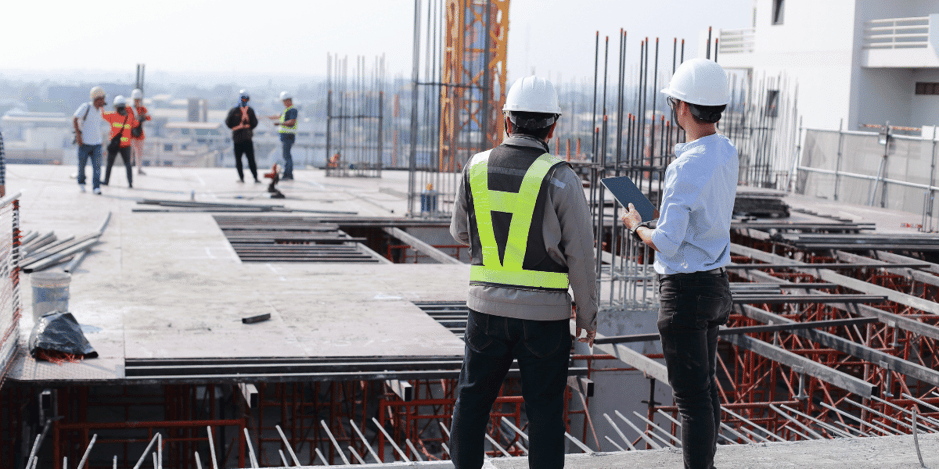
Are you a building owner who is wondering if you need a structural engineer? If so, read on for ten reasons why you should definitely consider hiring one.
A structural engineer can help ensure the safety of your building or facility, identify any potential problems, and recommend solutions. So if you want to keep your property in top condition, it's definitely worth considering hiring a professional structural engineer.
Before we get into the details, let's talk about the benefits of a structural engineer.
Benefits of a Structural Engineer
- A structural engineer can help you stay within budget by ensuring your plans are realistic and feasible.
- They can design and review the structural elements of your project, such as foundations, walls, roofs, and floors.
- They can identify potential problems before they become expensive issues.
- They can provide expert testimony if there is a failure or dispute related to the structure of your building.
- They can help ensure that your construction is up to code and compliant to standards.
- Most importantly, a good structural engineer will work with you to keep your employees and family safe during construction, so don't build without one.
When you're building a new home or business, or making changes to an existing one, it's important to have an engineer on your team.

Reasons you need a structural Engineer
Hiring a structural engineer to complete an in-depth analysis will identify any current or potential problems. A structural engineering firm will provide you with a comprehensive investigation report as well as pictures documenting the findings and a scope of work that a contractor may utilize to repair the damage.
Below are eight reasons having a structural engineering report are important to ensure your project is fully reliable and safe.
- Analyze and Design Buildings and Structures
- Structural Engineering Report or Inspection
- Buying or Repairing a Home
- Wall & Ceiling Cracks, Settling, and Structural Movement
- Structural Defect, Foundation, Bowing Walls and Cracks
- Disaster Recovery
- Drainage Issues
- Heat Loss Issues
- Drilling and blasting processes
- Land Reclamation
1. Analyze and design buildings and structures
The structural engineering branch of civil engineering studies and creates the gravity support and lateral force resistance of buildings, bridges, and other structures. Structural engineers, as a specialty in civil engineering, develop drawings and specifications, perform calculations, evaluate the work of other engineers, write reports and evaluations, and visit construction sites. This is especially critical in industries like data center construction, where modern AI data centers require specialized structural and mechanical designs to support high-density computing.
Structural engineering involves the relationships between physical forces and the force-resisting elements they act upon. In order to understand the strength of each element in a structure, analysts break down and study the forces at work within that pre-defined system. Design is the process of combining components in order to resist forces that have been previously estimated.
Analysis and Design are complementary procedures in the overall process of designing new structures. Once the designer has finished their initial design, they can then guesstimate the final placement of elements in a structure. However, an analysis must be done to figure out what forces will act on those element. After performing an analysis, the element forces are known, and the elements can be designed (their configuration can be chosen) more precisely. The process iterates between analysis and design until convergence is achieved.
2. structural engineering report or inspection
A structural engineering report is a structural analysis of a building's weight-bearing components, such as framing, foundation, beams, columns, posts, or trusses. This visual inspection is conducted to ensure the structure's stability.
A structural inspection is performed when a property owner has concerns about the structural soundness of a structure or building. This might include an evaluation of the entire structure or a study of one particular component of it.
Structural engineers undergo thorough training to attain a license and expertise of load bearing systems qualify them to perform structural inspections and ensure property owners the the safety, reliability, and sustainability of their build.
3. Buying or Repairing a Home
If you're thinking of renovating or buying a house, you'll probably get a general home inspection first to get an overview of the home’s condition. If the inspector finds problems with any load-bearing parts of the house, they will suggest a structural inspection for further examination.
A structural engineer can provide engineering reports regarding any problems including foundation cracks, temporary columns in the basement, water leaks and intrusion, sloping floors, bowing walls or settlement concerns. Depending on the severity of what is found, you then have the choice to walk away from purchase or negotiate the price so that it accounts for repair costs.
4. Wall & Ceiling Cracks, Settling, and Structural Movement
A sturdily constructed home shouldn't have any settling beyond a few tiny cracks. Nevertheless, really old homes might have some ceiling or wall settlement cracks as well as sloping floors because back in the day, architectural elements weren't designed to flex the way they are now. If you're ever worried about it, get answers sooner rather than later.
If you're noticing any settlement, whether it's a new build, old home, or recently remodeled, connect with a structural engineer to get ahead of any future risks.
5. Structural Defect, Foundation, Bowing Walls and Cracks
When it comes to foundations, small fractures are seldom an issue. However, if you encounter horizontal, vertical, or step cracks of ¼” or more in size in the foundation walls, or any movement, you should have a structural examination done to assess the situation to ensure functional safety.
Signs of structural defects are:
- Sticky doors and windows
- Crumbling and cracking foundation
- Wall and ceiling cracks
- Bowing walls and floors
- Sagging ceilings
- Steps pulling away from the house
6. Disaster Recovery
If you have experienced storm damage from strong winds and hurricanes, getting an evaluation from a structural engineer can help during disaster recovery situations. They determine whether or not your home or building’s structural integrity is compromised and help contractors know what equipment is best effective for the project.
For effective disaster reconstruction and mitigation, a structural engineering report will depict findings and scope of replacement for all weather related issues.
7. Drainage Issues
If left unchecked, drainage issues can destroy a home’s foundation, create costly exterior and interior damage, and form puddles of water that ice over in cold weather.
A structural inspection can help you identify where the problems began and how to apply efficient mitigation measures to protect your home or building's integrity.
8. Heat Loss Issues
Ice dams and high energy bills are only a few of the problems that heat loss can cause in your house. As technology shifts civil engineering, a structural analysis can better now assist you figure out where the heat is escaping and how to permanently address it.
9. Drilling and blasting processes
Civil and structural engineers are indispensable when it comes to drilling and blasting, as they design the layout of sites while upholding safety standards. Expert mining engineers also play a key role by introducing sensors to measure vibrations, studying rock characteristics, programming explosives detonations - all for the purpose of optimizing each project's performance.
10. Land Reclamation
Land reclamation is a complex dredging process that involves transforming unusable or underutilized land into viable and productive spaces. It requires careful planning, design, and execution to ensure the stability, safety, and long-term sustainability of the reclaimed land. In this context, structural engineers play a crucial role in the success of land reclamation projects.
Your Structural Engineering Experts
PES provides technology-based solutions for the design, permitting, and construction of infrastructure and real estate development on hundreds of projects. PES offers comprehensive structural engineering services, ensuring all projects are meticulously designed and executed with full ADA compliance in mind.
After merging with Rusty Bellard and Bellard & Associates, our structural engineering capabilities include all types of analysis, design, and administration services for construction projects.
Related Articles
Structural Engineers and Capital Project Construction in the Semiconductor Space - In this blog post, we will explore the intersection between capital project construction in the semiconductor space and the role of structural engineers in ensuring the success of these projects.
Energy Engineering: Powering the Future - Explore the world of energy engineering: its importance, skills required, facts, and its crucial role in climate change and sustainable development.
Carbon Capture and Storage (CCS): A Strategy in Combating Climate Change - Explore how CCS technology reduces greenhouse gas emissions, mitigates climate change, and supports businesses' ESG goals in our comprehensive guide.
8 Careers Most Needed in Construction Right Now - Dive into 8 high-demand construction careers. Learn about job roles, salaries, and qualifications to kickstart your career.
About Practical Engineering Solutions
Practical Engineering Solutions will always be dedicated to providing top-notch customer service to meet our industry demands.
We set ourselves apart with our consistency and timely turnarounds. We are always committed to being responsive to our clients, KEEPING OUR PROMISES, making delivery schedules, and standing by our designs!
From concept, design, and engineering, to project management and integrity services. We are your gateway to your journey's engineering endeavors. Including oil & gas, hemp & CBD, and food industries.
Providing services focusing in Facilities Engineering, Turn-Key Solutions, Hemp Facilities, Food Plant Engineering, Manufacturing, Engineering Services, Drafting & Design, and Inspection Services.


